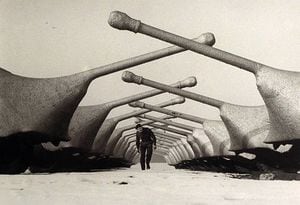The Shropshire village which helped win the war
As Britain was plunged into a new war, a small village in Shropshire, Donnington, was transformed.

"It became the new 'Woolwich,'" says historian and author Philip Hamlyn Williams.
"Central Ordnance Depot Donnington played a vital role in equipping the British Army with the fighting equipment it needed to win World War Two. It was built on green fields, but its story stretched back centuries.
"In the weeks following Dunkirk thousands of tons of stores were brought by rail to Donnington from Woolwich in East London, together with a good many people who had worked at Woolwich.
"It was said that if any soldier ever needed anything, the answer was to 'ask Woolwich.'"
Philip's own father was to play a key role in keeping Britain's wartime army supplied.
He was Bill Williams – that is, Major General Sir Leslie Williams – who was in charge of the army’s supply organisation, the Royal Army Ordnance Corps.
Philip told of the beginnings of the Donnington depot - apparently universally known as The Dump - in a book called War On Wheels, but has now written a prequel telling the back story, including the role of Woolwich Arsenal in the Great War.
"I found, in writing War On Wheels, there were so many questions that could only be answered by exploring what had been learnt by the key characters, then junior officers, in World War One.
"It is chilling to think that many men, including my own father, fought through two world wars and were of course the lucky ones to have survived the first."
He says that armaments had been made at Woolwich since the time of Henry VIII.
"Early in World War One it became clear that it simply did not have the capacity to make all the guns and ammunitions needed.
"Shell filling factories were created around the country and essentially the whole of British engineering industry was called to the war effort. The supply function though remained largely at Woolwich."
His new book, called Ordnance and published by The History Press, is the story of ordinary men and women throughout Britain who kept the Great War forces supplied.
It traces the provision of equipment and armaments from raw material, through manufacture, to the supply routes which put into the hands of the soldiers all the equipment that they needed to win the war.
